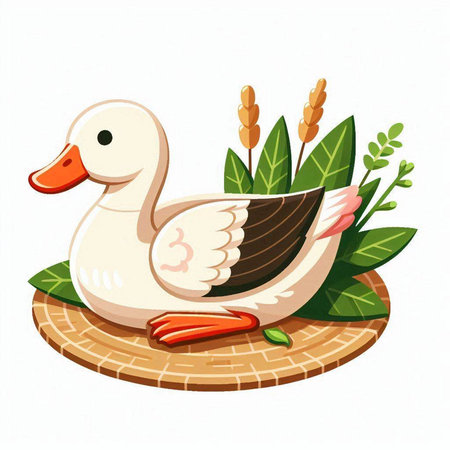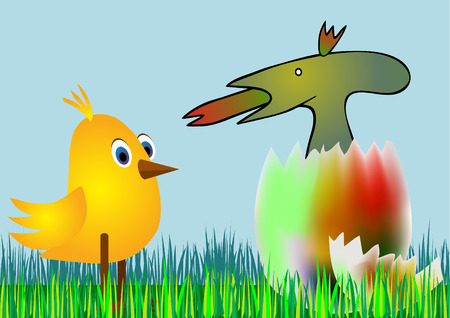1. Introduction: Harmonizing Traditional Indian Values and Pet Bird Care
India’s rich cultural tapestry is woven with threads of ethical and religious teachings that emphasize compassion, harmony, and respect for all living beings. These ancient values are not only integral to our daily lives but also profoundly influence the way we interact with the animals who share our world, including pet birds. In Indian philosophy—whether rooted in Hinduism, Buddhism, Jainism, or Sikhism—the principle of Ahimsa (non-violence) encourages us to treat every creature with kindness and dignity. This foundational belief forms a bridge between our spiritual heritage and our responsibility as caretakers. When we welcome a pet bird into our home, it becomes essential to align their care and training with these time-honored values. By drawing inspiration from Indian ethical and religious perspectives, we are reminded that pet bird training is not merely about obedience or entertainment; rather, it is an opportunity to cultivate empathy, patience, and mutual respect. Through this approach, we foster a nurturing environment where our feathered companions can thrive—honoring both our cultural legacy and the well-being of every life entrusted to us.
2. Ahimsa: Practicing Non-Violence in Bird Training
Ahimsa, a core value rooted deeply in Indian culture, Hinduism, Buddhism, and Jainism, emphasizes non-violence and respect for all living beings. In the context of pet bird training, Ahimsa guides us to adopt methods that are gentle, compassionate, and free from harm or coercion. This principle calls upon trainers and bird caretakers to approach every interaction with empathy, patience, and understanding—recognizing that birds too deserve dignity and kindness.
Understanding Ahimsa in Indian Tradition
The philosophy of Ahimsa is not just about avoiding physical harm; it encompasses thoughts, words, and intentions. Indian scriptures like the Bhagavad Gita and teachings of Mahatma Gandhi have long advocated for peaceful coexistence with all creatures. When applied to bird training, this ethical foundation means creating a stress-free environment where birds can learn at their own pace without fear or intimidation.
Impact of Ahimsa on Bird Training Methods
| Traditional Training | Ahimsa-Based Training |
|---|---|
| May use forceful methods or punishment | Relies on positive reinforcement and patience |
| Birds may experience stress or fear | Birds feel safe and build trust with humans |
| Focuses on obedience alone | Encourages mutual understanding and bonding |
Cultural Practices Embodying Non-Violence
In many Indian households, birds are seen as sacred guests (Atithi Devo Bhava), reinforcing the need to treat them with utmost care. Folk tales and religious stories often highlight compassionate acts towards animals. Integrating these cultural values into daily bird care ensures that training sessions are mindful of the bird’s well-being—employing soft tones, gradual acclimatization, and rewards over reprimands.
By embracing Ahimsa in bird training practices, Indian families not only honor their ethical and spiritual heritage but also foster a harmonious relationship between humans and pets. This approach ultimately leads to happier, healthier birds who thrive in loving homes.

3. Dharma: Fulfilling Our Duty as Compassionate Caregivers
In the Indian context, the principle of Dharma holds a central place in guiding our actions and decisions. Dharma, often translated as one’s moral duty or righteousness, extends beyond human relationships and encompasses our responsibilities towards all living beings, including pet birds. According to ancient Indian scriptures and teachings, every individual has a duty to act with compassion and fairness towards creatures that depend on us for their care.
When we welcome a pet bird into our homes, we are not just acquiring a companion; we are accepting a sacred responsibility. The concept of Dharma reminds us that these birds are sentient beings who deserve ethical treatment, respect, and kindness. In Hinduism, Jainism, Buddhism, and Sikhism alike, there is emphasis on ahimsa, or non-violence, which further reinforces our obligation to ensure the well-being of those under our care. This means providing not only adequate food and shelter but also emotional enrichment and freedom from suffering.
By embracing Dharma in pet bird training, Indian families can cultivate an environment where birds are treated with dignity rather than viewed merely as decorative possessions. Training should focus on positive reinforcement and gentle guidance instead of fear or punishment. This approach aligns with the broader Indian value system that honors the interconnectedness of all life forms and encourages compassionate stewardship.
Ultimately, fulfilling our Dharma as caregivers to pet birds is about recognizing their intrinsic worth and ensuring that their needs—physical, emotional, and social—are met with sincerity. By doing so, we uphold the highest ideals of Indian ethical and religious values while nurturing harmonious coexistence between humans and birds.
4. Samskara and Daily Rituals: Integrating Mindfulness in Pet Bird Routines
In Indian culture, the concept of Samskara—a series of purifying rites and ceremonies—plays a vital role not just in human life, but can also inspire compassionate care for pet birds. By integrating traditional rituals into daily routines, caregivers can foster a sense of mindfulness and spiritual connection with their feathered companions. This holistic approach nurtures both mental and emotional well-being, creating a harmonious environment for birds and humans alike.
The Role of Samskara in Everyday Care
Samskara emphasizes the importance of intentional actions, purity, and respect for all living beings. In the context of pet bird training, this translates into mindful interactions, gentle handling, and a structured daily schedule that mirrors the discipline found in many Indian households. Simple rituals—such as greeting your bird at sunrise with soft prayers or offering fresh water as an act of seva (selfless service)—can imbue daily tasks with deeper meaning.
Examples of Daily Rituals Inspired by Indian Tradition
| Ritual | Description | Benefits for Birds & Caregivers |
|---|---|---|
| Morning Prayers (Prarthana) | Begin the day by reciting gentle mantras or shlokas near the bird’s cage. | Creates a peaceful atmosphere; reduces stress for both parties. |
| Cleanliness (Shuddhi) | Daily cleaning of cage and feeding bowls as a ritual act. | Promotes hygiene; instills respect for the pet’s space. |
| Offering Food (Naivedya) | Present fresh fruits or grains to the bird mindfully before eating yourself. | Nurtures gratitude; strengthens caregiver-bird bond. |
| Evening Reflection (Dhyan) | Spend quiet time observing or meditating near your bird at dusk. | Enhances mutual trust; calms both mind and spirit. |
Cultivating Mindfulness Through Routine
By weaving these small acts of mindfulness into everyday care, we honor not only our pets but also uphold core Indian values such as Ahimsa (non-violence) and Daya (compassion). Each ritual becomes an opportunity to pause, reflect, and express love—reminding us that ethical treatment begins with awareness in even the smallest gestures. This sacred rhythm not only improves the welfare of our birds but also elevates our own sense of purpose and peace within the home.
5. Community and Seva: Promoting Awareness & Adoption
Community involvement has always been a cornerstone of Indian culture, especially when it comes to the concept of Seva, or selfless service. In the context of pet bird training, embracing Seva means going beyond personal benefit and working collectively for the well-being of birds and society. By organizing community-based initiatives—such as workshops, awareness campaigns, and local adoption events—citizens can spread knowledge about ethical bird training practices rooted in Indian values like compassion (daya) and non-violence (ahimsa). These programs not only educate families about responsible ownership but also stress the importance of adopting rather than buying birds, thereby discouraging illegal trade and exploitation.
Moreover, such initiatives can highlight the beauty and significance of native Indian bird species, many of which are under threat due to habitat loss and unethical captivity. Through collective Seva, communities can support rescue centers, participate in rehoming efforts, and advocate for the protection of indigenous species. As more people engage in these activities, the ripple effect leads to a deeper societal respect for all living beings—a principle emphasized in both Hinduism and other Indian religions. Ultimately, by making ethical bird care a shared responsibility, community-driven Seva transforms individual actions into a powerful movement for compassionate coexistence and sustainable stewardship.
6. Conclusion: Creating a Harmonious Future for Indian Households and Their Birds
Embracing Indian ethical and religious values in pet bird training is not just a matter of tradition, but a powerful way to nurture compassion, respect, and happiness within our homes. These principles—rooted in ahimsa (non-violence), daya (compassion), and dharma (duty)—remind us that every living being deserves kindness and understanding. By applying these teachings in our daily interactions with pet birds, we ensure their physical well-being and emotional security, creating an atmosphere where trust flourishes.
When families integrate such values into their care routines, birds are more likely to thrive as beloved members of the household rather than mere possessions. This approach inspires children and adults alike to see pet ownership as a sacred responsibility, promoting patience and empathy that extend beyond the cage or aviary. Moreover, respecting each bird’s unique nature aligns perfectly with India’s rich spiritual heritage, which teaches us to honor all forms of life.
As more people witness the benefits of value-driven pet care, responsible adoption becomes the natural choice over impulsive purchases or neglectful practices. Choosing to adopt means giving homeless or rescued birds a second chance at a joyful life—an act consistent with Indian ideals of seva (selfless service) and karuna (mercy). By spreading awareness about this compassionate approach, we can collectively build a future where every Indian home radiates warmth, harmony, and respect for all creatures.
Let us come together as a community to uphold these timeless values in every aspect of pet bird care. In doing so, we not only enrich our own lives but also set an inspiring example for future generations—fostering a culture where ethical treatment of animals is celebrated as an essential part of our national identity.

